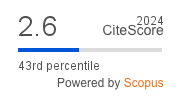TRANS-VQA: Fully Transformer-Based Image Question-Answering Model Using Question-guided Vision Attention
DOI:
https://doi.org/10.4114/intartif.vol27iss73pp111-128Keywords:
Visual question answering, Transformer-based VQA, BERT-based VQA, Question-guided VQAAbstract
Understanding multiple modalities and relating them is an easy task for humans. But for machines, this is a stimulating task. One such multi-modal reasoning task is Visual question answering which demands the machine to produce an answer for the natural language query asked based on the given image. Although plenty of work is done in this field, there is still a challenge of improving the answer prediction ability of the model and breaching human accuracy. A novel model for answering image-based questions based on a transformer has been proposed. The proposed model is a fully Transformer-based architecture that utilizes the power of a transformer for extracting language features as well as for performing joint understanding of question and image features. The proposed VQA model utilizes F-RCNN for image feature extraction. The retrieved language features and object-level image features are fed to a decoder inspired by the Bi-Directional Encoder Representation Transformer - BERT architecture that learns jointly the image characteristics directed by the question characteristics and rich representations of the image features are obtained. Extensive experimentation has been carried out to observe the effect of various hyperparameters on the performance of the model. The experimental results demonstrate that the model’s ability to predict the answer increases with the increase in the number of layers in the transformer’s encoder and decoder. The proposed model improves upon the previous models and is highly scalable due to the introduction of the BERT. Our best model reports 72.31% accuracy on the test-standard split of the VQAv2 dataset.
Downloads
Metrics
Downloads
Published
How to Cite
Issue
Section
License
Copyright (c) 2024 Iberamia & The Authors

This work is licensed under a Creative Commons Attribution-NonCommercial 4.0 International License.
Open Access publishing.
Lic. under Creative Commons CC-BY-NC
Inteligencia Artificial (Ed. IBERAMIA)
ISSN: 1988-3064 (on line).
(C) IBERAMIA & The Authors









